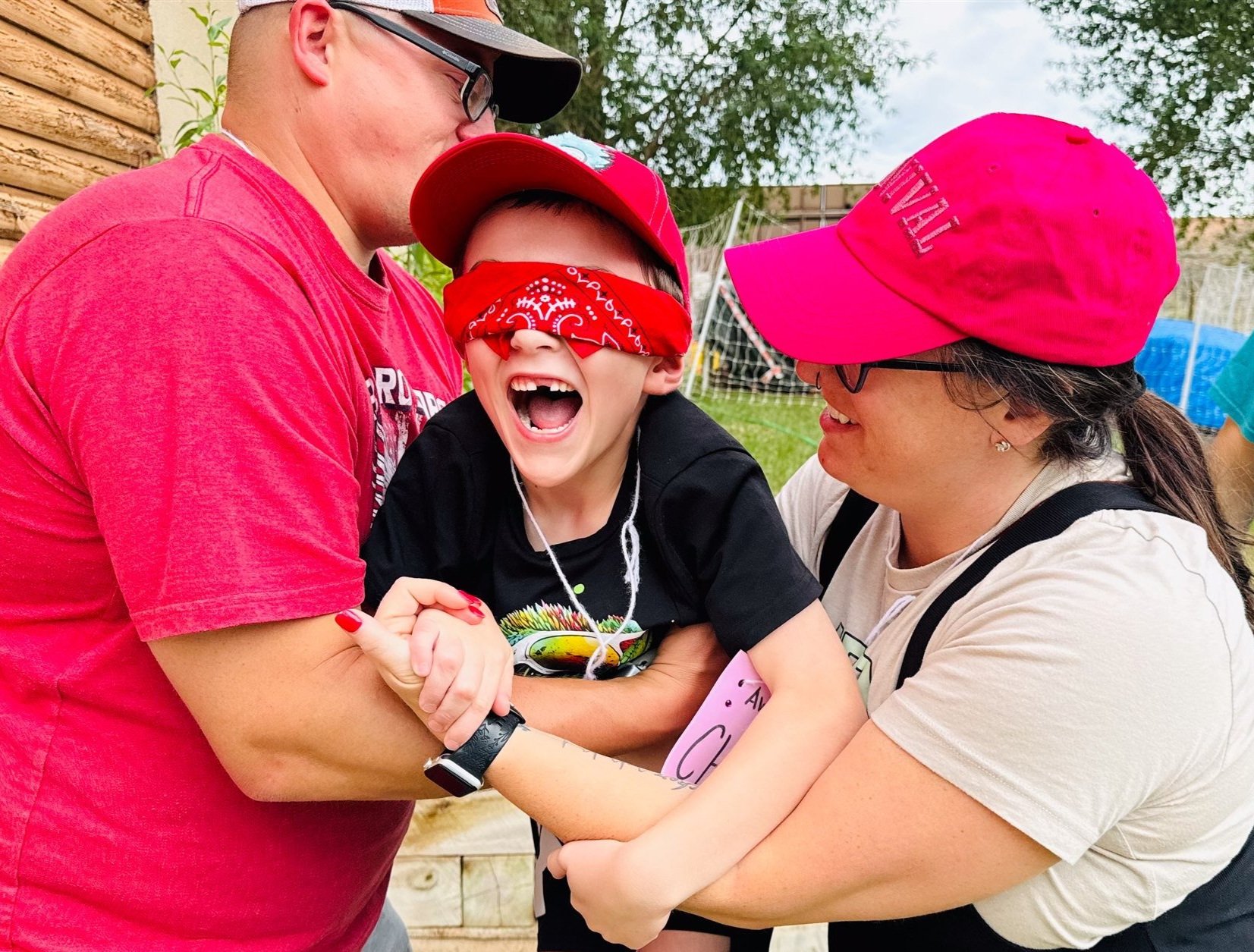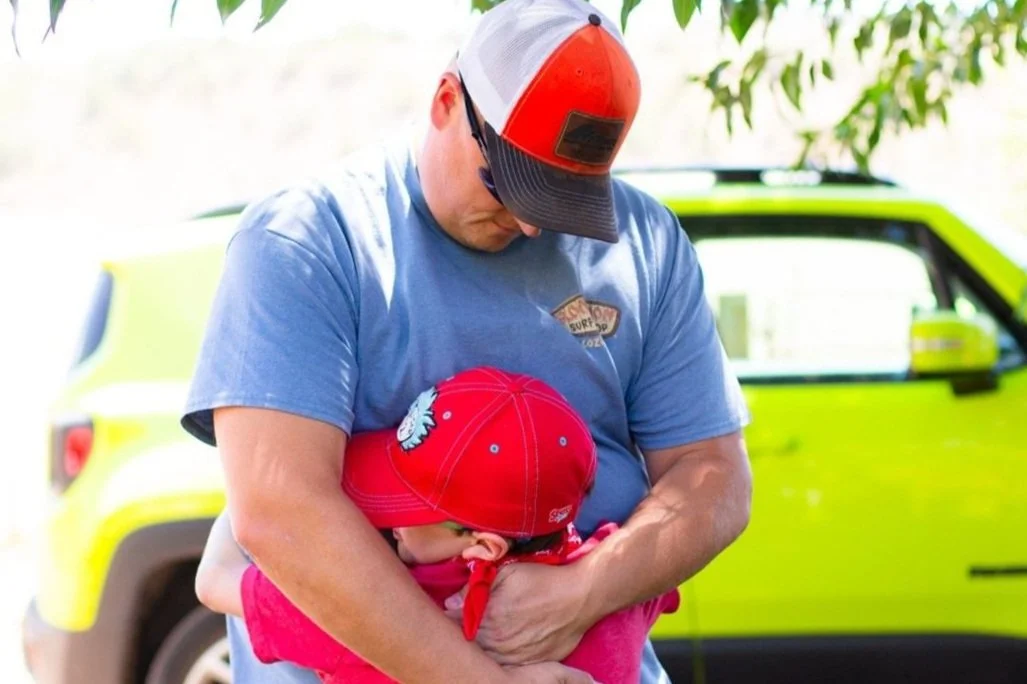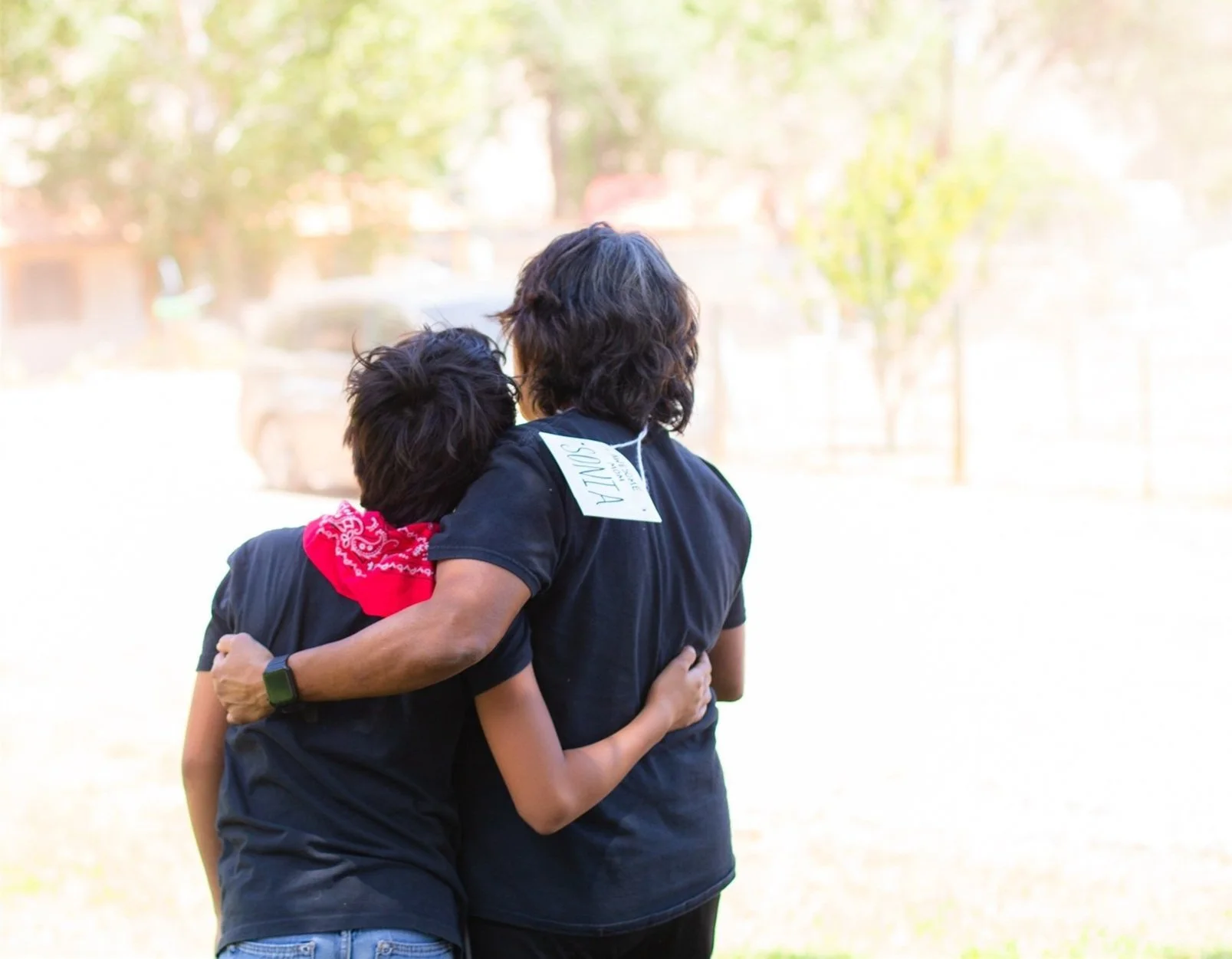
Healing Hearts Camps for whole family healing
Our Family Bonding Camps are Nancy Thomas approved.
Healing Hearts Camp is for families.
-

Parents
At Family Bonding Camp parents are AWESOME! The camp experience refocuses the respect and trust that Mom and Dad deserve. Camp staff supports parents, extending rest and nurturing to frazzled places. Learn new tools and valuable information about trauma to understand wounded hearts and brains.
-

Kids with trauma
Our kids with complex trauma receive the structure and empathy they need to begin the reset. They will learn trust and respect for the family that loves and cares for them as they work through barriers to attachment. They participate in brain-based attachment-oriented fun to help them to feel safe and give up control.
-

Healthy kids
Our healthy kids get the break and attention they miss in the chaos of living with traumatized siblings. We have a program designed for them to maximize their participation and enjoyment.
